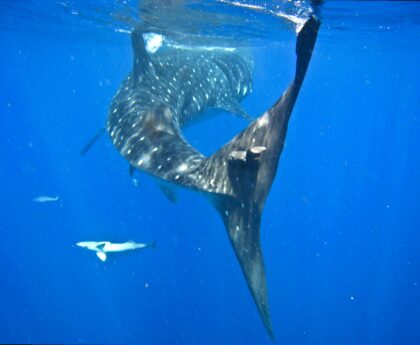Are you passionate about marine life and looking for a way to make a tangible difference in the environment? By joining a reef conservation project, you can play a crucial role in protecting and preserving the delicate ecosystems of coral reefs. These initiatives are designed to combat the threats reefs face and ensure their survival for future generations.

Why Coral Reefs are Vital to Our Planet
Coral reefs are often referred to as the rainforests of the sea due to their incredible biodiversity. They support an astonishing variety of marine life, including 25% of all marine species, despite covering less than 1% of the ocean floor. This biodiversity is crucial for the health of the oceans and provides countless benefits to human societies. From contributing to global fisheries and tourism to protecting coastlines from erosion and storm damage, the importance of coral reefs cannot be overstated.
Unfortunately, coral reefs are facing numerous threats, including climate change, pollution, overfishing, and destructive fishing practices. The increasing frequency of coral bleaching events and the spread of coral diseases add to the urgency of conservation efforts.
How You Can Contribute to Reef Conservation

Getting involved in a reef conservation project allows you to directly contribute to the protection of these vital ecosystems. By participating, you can engage in a variety of activities such as reef monitoring, coral planting, and beach clean-ups. These activities not only help repair and restore damaged reefs but also provide essential data to researchers and conservationists working on long-term solutions.
- Reef Monitoring: Collect data on reef health, water quality, and marine life populations.
- Coral Planting: Support reef restoration by planting coral fragments in damaged areas.
- Beach Clean-ups: Remove debris and pollutants from coastlines to prevent them from harming marine life.
Additionally, you will have the opportunity to educate local communities about the importance of reef conservation and sustainable practices. Increasing awareness and promoting environmental stewardship are key components of successful conservation efforts.

The Impact of Joining a Reef Conservation Project
By joining a reef conservation project, you not only contribute to immediate conservation efforts but also help build a more sustainable future. The data collected from monitoring activities provides crucial insights into the health of coral reefs and informs policy decisions and conservation strategies. Coral planting efforts can accelerate the recovery of damaged areas, creating new habitats for marine species and boosting biodiversity.
Moreover, your involvement in beach clean-ups helps reduce pollution, which is a significant threat to marine ecosystems. Removing plastics and other debris from the environment prevents these materials from breaking down into microplastics that can be ingested by marine life and enter the food chain.
Steps to Get Involved

Getting involved in a reef conservation project is easier than you might think. Here are some steps to help you get started:
- Research Organizations: Look for reputable organizations that offer reef conservation projects. Examples include Coral Restoration Foundation, Reef Check, and various local marine conservation groups.
- Choose a Project: Select a project that aligns with your interests, whether it’s coral planting, reef monitoring, or community education.
- Get Trained: Many organizations offer training programs to equip you with the skills needed for your conservation efforts.
- Participate: Join the project and start contributing your time and effort to reef conservation activities.
- Spread Awareness: Use your experience to educate others about the importance of reef conservation and encourage them to get involved.
Remember, every effort counts, and collectively we can make a significant impact on preserving our coral reefs.
Conclusion
Joining a reef conservation project is a meaningful way to contribute to the preservation of one of the planet’s most vital ecosystems. By participating in activities like reef monitoring, coral planting, and beach clean-ups, you can make a tangible difference in the fight against the numerous threats facing coral reefs. Not only does this work benefit marine life, but it also supports the health and well-being of human communities that rely on reef ecosystems. Together, we can protect and restore these precious underwater habitats, ensuring they thrive for generations to come.
FAQs
What are the main threats to coral reefs?
The main threats to coral reefs include climate change, pollution, overfishing, and destructive fishing practices. Coral bleaching and disease outbreaks are also significant concerns.
How does coral planting help reefs?
Coral planting involves growing coral fragments and transplanting them to damaged areas. This helps accelerate the recovery of reefs, creates new habitats for marine life, and boosts biodiversity.
Can anyone join a reef conservation project?
Yes, many organizations welcome volunteers of all backgrounds. Some may require specific training, but most provide the necessary education and support to get you started.
How do reef monitoring activities contribute to conservation?
Reef monitoring activities collect data on reef health, water quality, and marine life populations. This information is crucial for developing effective conservation strategies and informing policy decisions.
What are the benefits of participating in a conservation project?
Participating in a conservation project allows you to make a positive impact on the environment, gain valuable knowledge and skills, and contribute to the long-term health of coral reefs and marine ecosystems.


